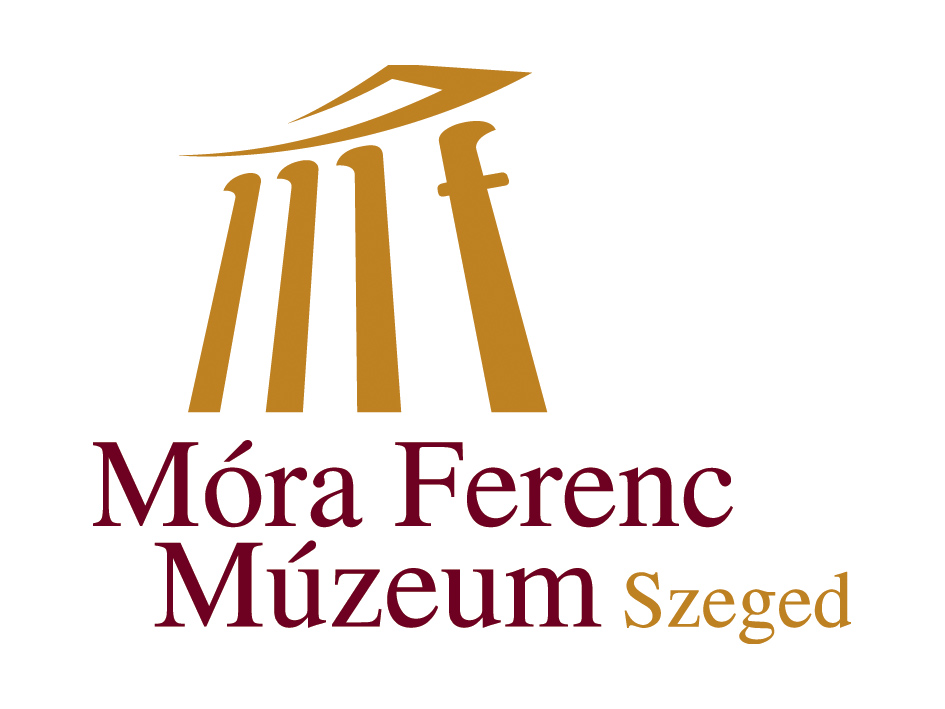Psalmus hungaricus
The Psalmus hungaricus (Hungarian Psalm) is a composition by Zoltán Kodály. Kodály was asked to compose the work in 1923, on the occasion of the 50th anniversary of the unification of Pest, Buda, and Óbuda, and it was presented on the occasion of a celebration held at the Vigadó (a prestigious concert hall in Budapest) on November 19. The work was based on a 16th-century paraphrase of the Psalms by Mihály Kecskeméti Vég, which was a rework of Psalm 55. It is fascinating how the biblical verse, the late medieval text, and Kodály’s 20th-century musical piece connect with each other. The basis of the connection is the invocation to God in the face of oppression by the enemy and the trust put into the Lord in the hope of a better future. Hungarians after the First World War could easily identify with this message. Kodály’s choral work, accompanied by a large orchestra, conveys the ideas of the transcript of the psalm in a very compelling way, and it was a great success at the celebration in the Vigadó.
From the second occasion onwards, a children’s choir joined the performance. The young János Kass was a member of this choir, and this was his first encounter with the Psalmus. According to his recollections later, this encounter was a fundamental experience for him, and, as a consequence, he could start work from a much more personal, devotional experience when the Zenemű Publishing House commissioned his illustrations for the Hungarian Psalm. The drawings were exhibited at the Kodály Institute in Kecskemét, and the illustrated work was published in a book form in 1977. In Kass’s works, pure emotions and feelings break out as ink lines on the surface of the paper. The colourful chalk lines emphasize the „sentences” of the black ink lines like exclamation marks. The sheets are visual manifestations of the cathartic flow of Kodály’s composition.
This is how János Kass articulated his thoughts and feelings in connection to the Psalmus:
„The Psalmus has accompanied me throughout my whole life: the euphoria of the singing child, the catharsis of the drawing artist, the joy of the exhibition. The radiance of the work inspires action; the rage and energy of David multiply within us! The Psalmus hungaricus is a living fire; it does not warm us but scorches us, burning its message into our flesh!”
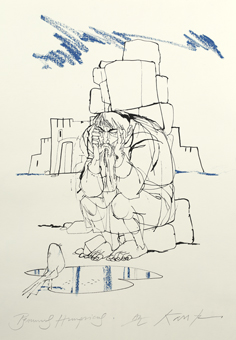
In the Wasteland
Psalmus Hungaricus I
1983
hand-coloured screen print, paper
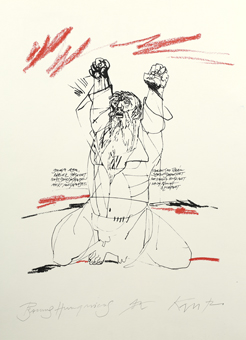
My heart within me weeps deepest anguish!
Psalmus Hungaricus II
1983
hand-coloured screen print, paper
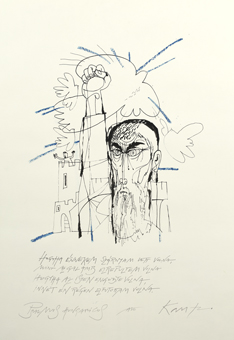
I would have flown away
Psalmus Hungaricus III
1983
hand-coloured screen print, paper
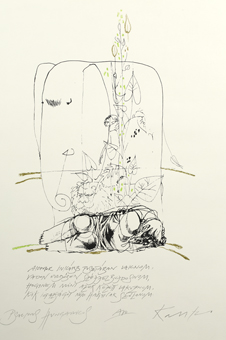
In the wilderness of the forest, let me wander
Psalmus Hungaricus IV
1983
hand-coloured screen print, paper
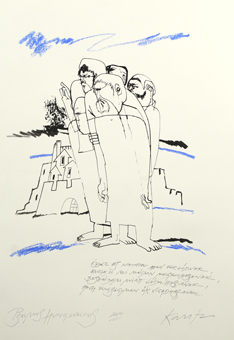
How can they catch me?
Psalmus Hungaricus V
1983
hand-coloured screen print, paper
This whole city
Psalmus Hungaricus VI
1983
hand-coloured screen print, paper
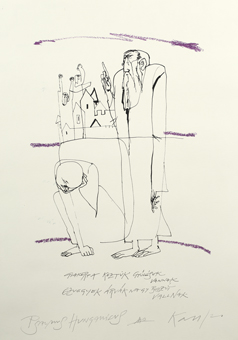
They are puffed up in their wealth
Psalmus Hungaricus VII
1983
hand-coloured screen print, paper
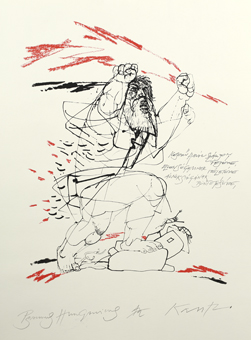
To the judgment of my enemy
Psalmus Hungaricus IX.
1983
hand-coloured screen print, paper
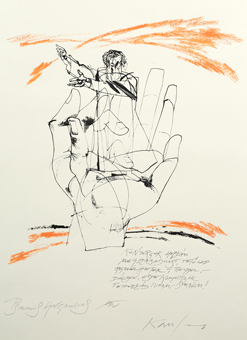
You raise it again
Psalmus Hungaricus XII
1983
hand-coloured screen print, paper
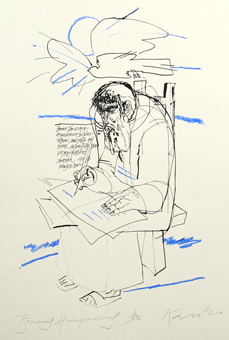
In the Eulogy of Saint David
Psalmus Hungaricus XIII
1983
hand-coloured screen print, paper

